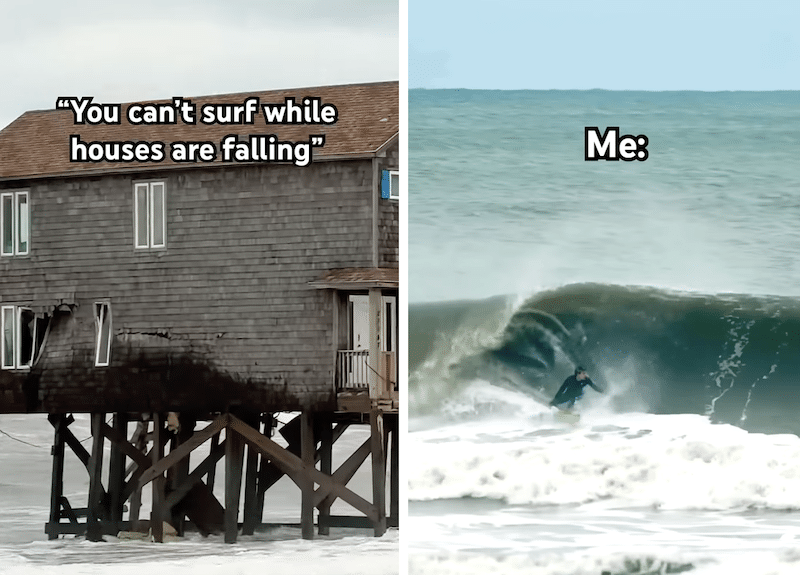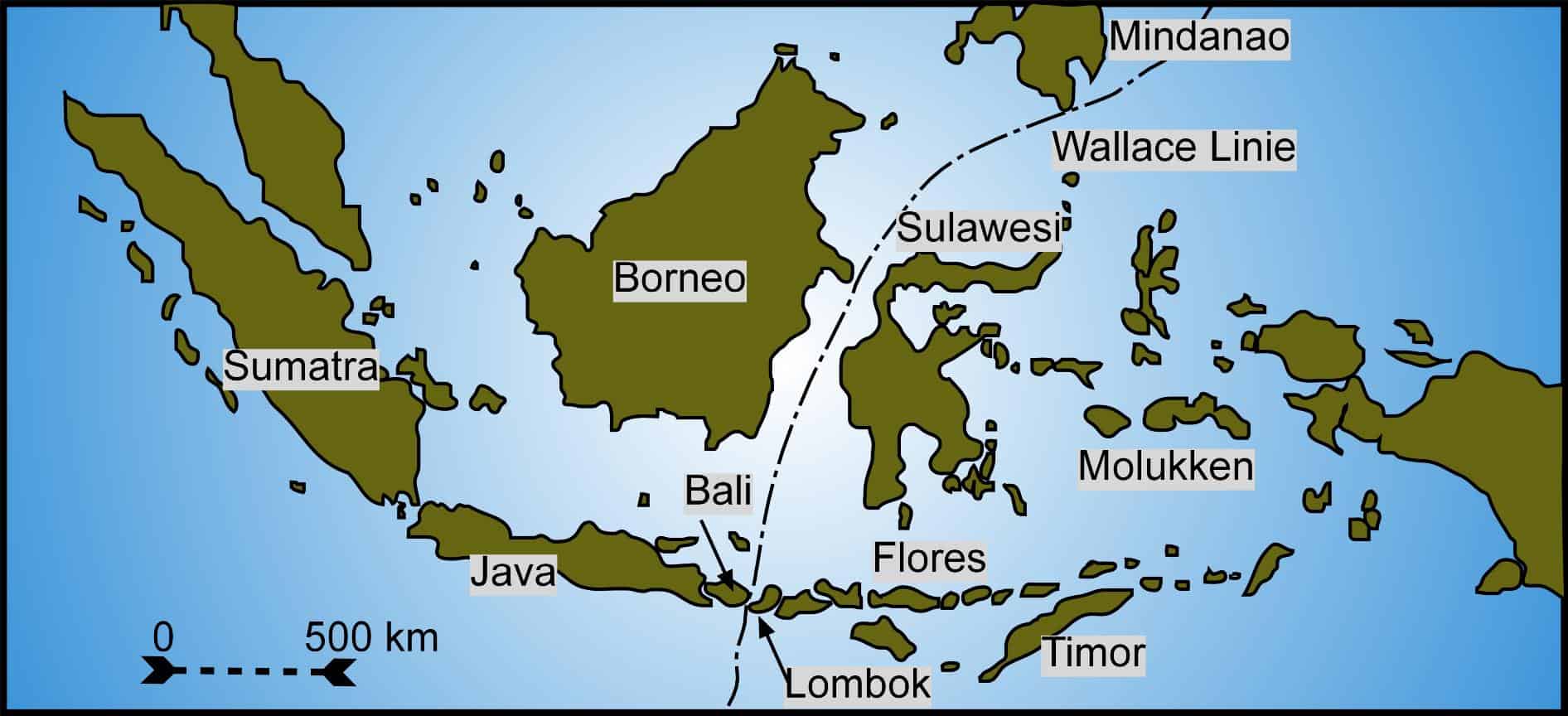
The surf world is buzzing after Cruz Dinofa, a young phenom from New Jersey, defied one of surfing’s oldest adages: “You can’t surf when houses are falling.” This bold move took place off the coast of North Carolina amidst the dramatic backdrop of collapsing stilt homes, a situation that has left many surfers stranded on the beach.
Dinofa’s daring feat has sparked a conversation about the foundational myths that have guided surfing culture for decades. His actions not only challenge traditional wisdom but also invite a reevaluation of what is possible in the sport. As Nietzsche once suggested, true innovation comes from those who dare to think differently.
Breaking the Surfing Myth
The saying “You can’t surf when houses are falling” has been passed down through generations of surfers, from the beaches of Malibu in the 1950s to the shores of Rio de Janeiro in the 1990s. This belief has been as ingrained in surf culture as the notion that “Hawaiian Airlines hates longboarders.”
However, Dinofa’s recent exploits have shattered this long-held assumption. As homes tumbled into the sea, Dinofa paddled out and got barreled, proving that the conditions, though risky, were still ripe for surfing.
“The discovery of truth is prevented more effectively, not by the false appearance things present and which mislead into error, not directly by weakness of the reasoning powers, but by preconceived opinion, by prejudice.” — Arthur Schopenhauer
Koa Smith’s Spiritual Journey
While Dinofa challenges physical boundaries, another surfer, Koa Smith, is exploring the metaphysical. Smith, a renowned surfer from Kauai, has launched an online program aimed at helping individuals reconnect with themselves through ancient practices like breathwork and meditation.
Smith’s initiative, priced at $29 per month, promises a holistic approach to personal growth. In a message to his Instagram followers, Smith shared his journey of overcoming brain injury and finding solace in meditation and plant medicine. His program offers step-by-step videos, monthly calls, and guest sessions with experts.
“This isn’t about telling you how to live your life. This is about creating fertile ground for you to rediscover and reconnect with who you truly are through ancient practices that we’re all born with.” — Koa Smith
Power Plays in the Surf World
Meanwhile, in Brazil, the Circuito Banco do Brasil de Surfe – Imbituba is underway, featuring a special “ex-pro surfer heat.” Among the participants is Michell Peninha, the mayor of the town, who has never surfed professionally. His inclusion has raised eyebrows and sparked discussions about power dynamics and ambition in the surf community.
As the mayor takes to the waves, spectators are left to ponder whether his constituents will cheer him on or grumble about his apparent power play. The situation highlights the ongoing tension between authority and ambition in the world of professional surfing.
Controversial Views on Maui Fires
The surf world is not immune to broader societal debates. Recently, Charlie Kirk, a conservative commentator, criticized the response to the Maui fires and linked local traditions to the disaster. His comments have sparked controversy and highlighted the divide between differing cultural perspectives.
Kirk’s views on the fires and his critique of what he describes as “pagan Hawaiian culture” have been met with backlash. His comments underscore the challenges of navigating cultural sensitivities while addressing environmental and societal issues.
“Maui did not have to burn. They didn’t believe such wacky, goofy, pagan stuff. They believe in pagan Hawaiian culture. We must worship water, not life.” — Charlie Kirk
As these stories unfold, they remind us of the complexities and intersections of culture, innovation, and power within the surfing community and beyond. Whether challenging physical limits or exploring spiritual depths, the surf world continues to be a microcosm of broader societal dynamics.





